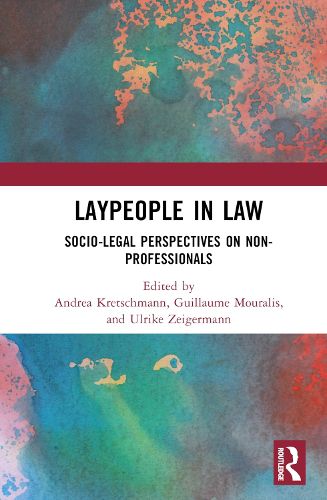Readings Newsletter
Become a Readings Member to make your shopping experience even easier.
Sign in or sign up for free!
You’re not far away from qualifying for FREE standard shipping within Australia
You’ve qualified for FREE standard shipping within Australia
The cart is loading…






This book contributes to a better understanding of the role laypeople hold in the social functioning of law.
It adopts the scholarly insight that the law is unthinkable without an everyday legal understanding of the law pursued by laypeople. It engages with the assumption that not only the law's existence but also its development is shaped by the layperson's affirmations, oppositions, ignorance, or negations of the law. This volume thus aims to fill a void in socio-legal studies. Whereas many sociolegal theories tend to conceptualize the law through legal experts' actions, institutions, procedures, and codifications, it argues that such a viewpoint underestimates the role of laypeople in the law's processing and advocates for a strengthened conceptual place in socio-legal theory.
This book will appeal to socio-legal scholars and sociologists (of law), as well as to legal practitioners and laypersons themselves.
$9.00 standard shipping within Australia
FREE standard shipping within Australia for orders over $100.00
Express & International shipping calculated at checkout
This book contributes to a better understanding of the role laypeople hold in the social functioning of law.
It adopts the scholarly insight that the law is unthinkable without an everyday legal understanding of the law pursued by laypeople. It engages with the assumption that not only the law's existence but also its development is shaped by the layperson's affirmations, oppositions, ignorance, or negations of the law. This volume thus aims to fill a void in socio-legal studies. Whereas many sociolegal theories tend to conceptualize the law through legal experts' actions, institutions, procedures, and codifications, it argues that such a viewpoint underestimates the role of laypeople in the law's processing and advocates for a strengthened conceptual place in socio-legal theory.
This book will appeal to socio-legal scholars and sociologists (of law), as well as to legal practitioners and laypersons themselves.